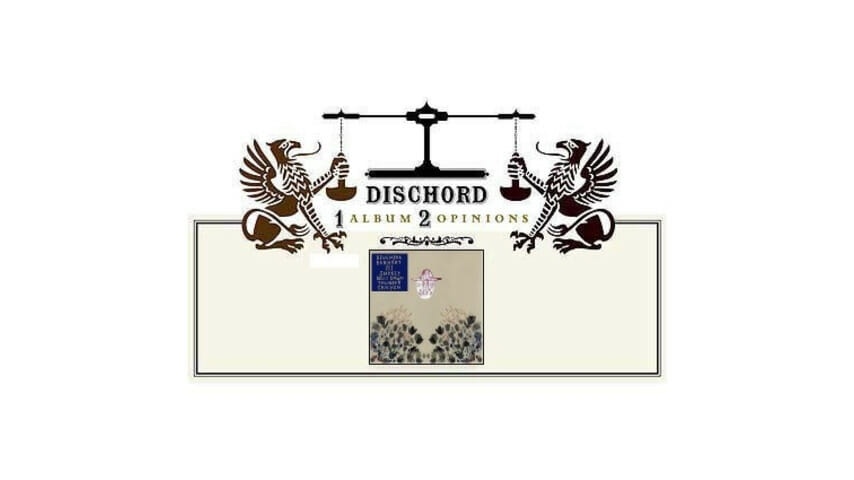Dischord – Devendra Banhart

Thunder
By Jeff Leven
It’s a testament to his backhanded skill that you don’t have to like Devendra Banhart to enjoy his music. Sidestepping the trappings of his admitted pretensions, if you found this album on vinyl in the basement of any college-town record store you’d pat yourself on the back for your cratedigging skills and play “Samba Vexillographica” when the fifth glass of wine was poured. And, frankly, there’s something jarringly real about Banhart’s overt identification with the sonic aesthetics of the 1960s. Drenched in a convincing patina of analog production, songs like “Seahorse” or “Bad Girl” can truly pass as Laurel Canyon castaways, and there’s a sense that the collective THC cough of Monterrey Pop somehow slunk its way across four decades and into the body of a misplaced hipster. Even the intense Orbisonesque oy-vey oddball weirdness of “Shabop Shalom” sounds like it belongs in the playlist of a border radio station that no longer exists. The childlike ambition of Banhart’s sprawl belies an undersung warmth. At a time when so many retrograde genre exercises feel premeditated, Banhart’s loopiness is a sloppy brew with a truly intoxicating aftertaste.
Blunder
By Andy Beta
Despite a title that seemingly promises high-octane car chases (this after posting possible titles like The Burnt Frizbee and Foreskin Sword to his MySpace page), Devendra Banhart’s ?fth full-length instead continues wallowing in the same drugged-out sound of his previous efforts. While his debut offered abject weirdness and answering-machine ?delity, Banhart matured and blossomed with 2004’s dual releases Rejoicing in the Hands and Nino Rojo. But the very next year found Banhart navel-gazing, or else staring off into space, barely bothering to ?esh out the childish lyricism of . Smokey indulges Banhart’s obsession with South American psychedelia on “Cristobal” and “Carmencita,” something he’s more than capable of pulling off. In the album’s best moments, Banhart sounds intent on being as downcast and languid as possible, especially toward the end. In between though, he maddeningly detours into trite reggae (“The Other Woman”), gospel (“Saved”), doo-wop (“Shabop Shalom”) and Elvis impersonations (“So Long Old Bean”). And while he approximated Marc Bolan’s freak-folkiness early on, he now apes T. Rex’s glittering glam-rock, with “Lover,” to limp results. For Smokey, he could’ve at least shaved his beard and grown a Burt Reynolds’s moustache instead.
GET PASTE RIGHT IN YOUR INBOX
The best music, movies, TV, books, comedy and more.